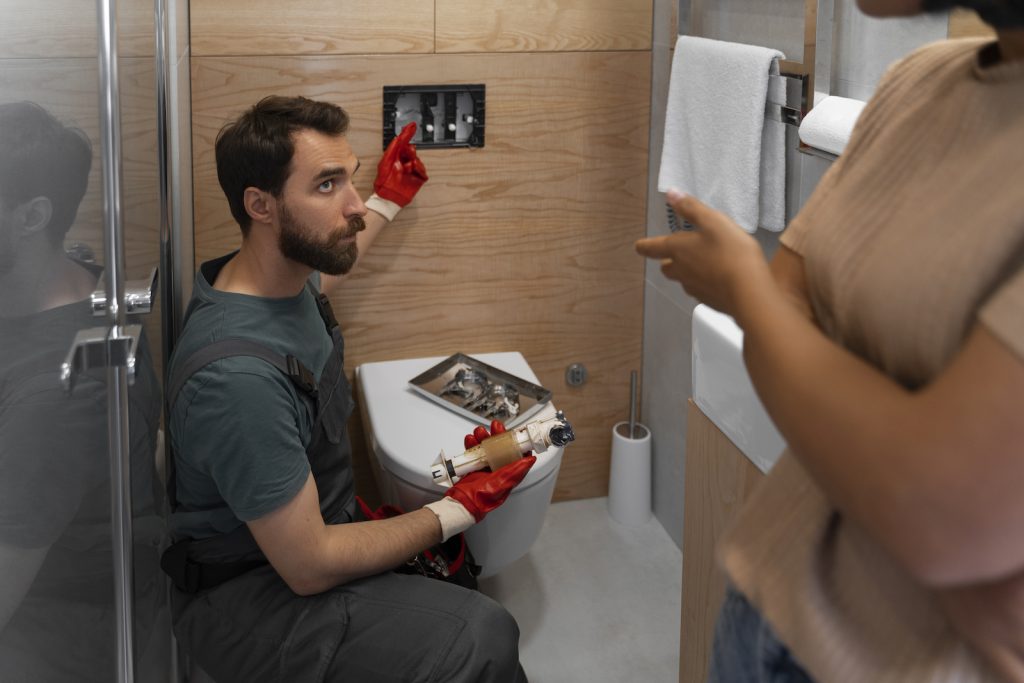Blocked drains are a nightmare. It may sound obvious, but one of the best ways to prevent blocked drains is to be careful about what you put down them!
Substances such as cooking grease, coffee grounds, hair and soap scum are some of the worst things for your drains. It is commonly known that allowing food waste into your sink is the main cause of blocked drains in the kitchen. The waste increasingly gets stuck in the pipes causing big problems and eventually a blockage. Not only is this really annoying and potentially costly, but there can also be a foul smell involved. Therefore, all sinks should have a filter over the plug in order to stop this. It’s the cheapest way to avoid blockage but still many of us still don’t use them.

Additionally, for kitchen drains, you should never pour grease directly down the drain. Instead you should pour it into a safe container, wait for it to cool and then throw it in the bin.
If you must pour it into the drain, always follow with a blast of cold water as this solidifies the grease and stops it from clinging to pipes, consequently avoiding blocked drains.
In the bathroom, avoid dropping any foreign objects such as hair grips down drains as these will quickly collect other debris such as hair and cause a block.
Items such as sanitary towels, nappies, cotton wool, tampons, and face wipes should all be placed in the bin and not flushed down toilets where they may cause an overflow of water due to the narrowness of the pipes. Using excessive amounts of toilet paper can also be a common factor in drains becoming blocked, so make sure you are using just enough each time.
Hair is a particularly common cause of blockage in bathroom sinks and showers. A strand of hair may be harmless but as they amass they can restrict water flow through your pipes, causing huge problems. To prevent blocked drains, ensure you have a cover or hair trap installed over your drain and clear it after every shower.
A drain strainer, also known as a drain grate or screen, can be purchased for a few pounds but could save you lots in repairs and cleaning by preventing blocked drains.
Strainers can be applied to sinks of all types and sizes easily to prevent prohibited items from making their way into your wider drainage system.
Outside drains are not exempt from causing blockages! There are many elements outdoors that can obstruct the water flow, such as leaves, twigs and small tree branches. Keep these away from your outside drains to maintain proper water flow. You can also purchase a drain cover on line for extra protection of your domestic drains.
It is important to remember that responsibility for blocked drains on private property usually belongs to the property owner, who is also liable for the cost of the clearance of the blockage.
However, if your blocked drain causes water access into your neighbour’s property – you could also be accountable for the restoration of any damage caused.
When disposing of anything, think before you put it down the sink!
Does ‘Smart Controls’ Only Mean Convenient?
Is it time to reassess what we mean by ‘smart controls’? During recent months gas engineers, homeowners and government officials are considering taking a more realistic view of these heating controls; but why? Our blog is here to explain all and give our opinion. Smart heating has engaged people in their heating and boiler usage […]
READ MOREPreparing Your Boiler For Winter
Winter is when you need your heating most so conducting checks in autumn can seriously reduce the chances of a breakdown as all repairs can be completed before winter. The chances of your boiler malfunctioning and breaking down are increased during the colder months as your heating system has hardly been used throughout the summer. […]
READ MOREWhy Is An Annual Boiler Service Essential?
Your boiler is guaranteed to be exposed to wear and tear during its life; therefore, an annual boiler service should be considered a necessity. The act of a boiler service involves a thorough inspection of the inside of the boiler, removing the casing, cleaning all parts as required and ensuring it’s properly sealed. Your registered […]
READ MORE6 Top Tips For Prolonging The Life Of Your Boiler
Depending on your boiler, the general life expectancy is around 15 years. However, boilers are often neglected and without the proper care there is a higher chance of it malfunctioning.Here’s some tips to help maintain your boiler at its maximum competence, saving you money in the long term. Annual Boiler Servicing An annual boiler service […]
READ MOREGas Safety Week: Fighting for a Gas Safe nation
We are proud to be supporting Gas Safety Week 2017, taking place 18th – 24th September. Gas Safety Week is an annual safety week to raise awareness of gas safety and the importance of taking care of your gas appliances. It is co-ordinated by Gas Safe Register, the official list of gas engineers who are […]
READ MORERecent Posts
Categories